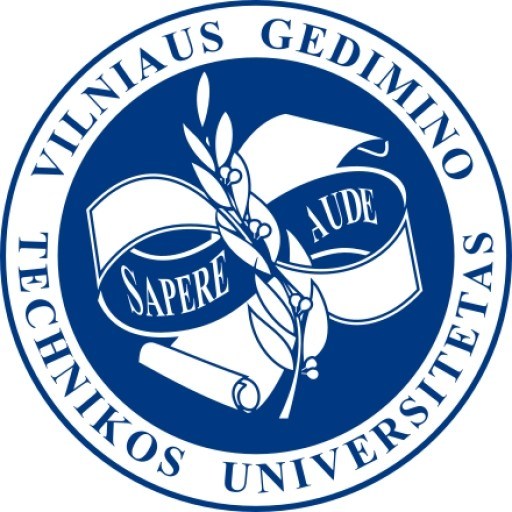Photos of university / #stanford
Energy Resources Engineering at Stanford University is a comprehensive interdisciplinary program designed to prepare students for leadership roles in the development, management, and sustainable utilization of global energy resources. The curriculum combines principles from engineering, economics, and environmental sciences to equip students with the technical expertise and strategic understanding necessary to address the complex challenges facing the energy industry today. Students in this program delve into topics such as hydrocarbon production, renewable energy technologies, energy systems analysis, and environmental impact assessment, fostering a holistic perspective on resource development and conservation. The program emphasizes hands-on learning through laboratory work, industry internships, and collaborative research projects, providing students with real-world experience and industry connections.Graduate students have access to cutting-edge facilities and are encouraged to develop innovative solutions for energy production, efficiency, and sustainability. The program also promotes leadership and policy understanding, preparing graduates to influence energy policy and drive sustainable change in various sectors. Whether pursuing careers in energy companies, government agencies, research institutions, or entrepreneurship, students gain a strong foundation in the technical and societal aspects of energy resources. The program is committed to advancing sustainable energy solutions and addressing global energy needs responsibly, making it a vital hub for innovation and education in energy resources engineering.
The Energy Resources Engineering undergraduate curriculum is designed to prepare students for participation in the energy industry or for graduate studies, while providing requisite skills to evolve as the energy landscape shifts over the next half century. The program provides a background in mathematics, basic sciences, and engineering fundamentals such as multiphase fluid flow in the subsurface. In addition, the curriculum is structured with flexibility that allows students to explore energy topics of particular individual interest and to study abroad.
In brief, the unit and subject requirements are:
| Units | ||
|---|---|---|
| Energy Resources Core | 15-16 | |
| Energy Resources Depth | 18 | |
| Mathematics | 25 | |
| Engineering Fundamentals and Depth | 20-24 | |
| Science | 29-32 | |
| Technology in Society | 3-5 | |
| University Requirements: IHUM, GERs, Writing, Language | 60-70 | |
| Total Units | 170-190 | |
The following courses constitute the normal program leading to a B.S. in Energy Resources Engineering. The program may be modified to meet a particular student's needs and interests with the adviser's prior approval.
Required Core in Energy Resources Engineering
| Units | ||
|---|---|---|
| The following courses constitute the core program in Energy Resources Engineering | ||
| ENERGY 101 | Energy and the Environment | 3 |
| ENERGY 104 | Sustainable Energy for 9 Billion | 3 |
| ENERGY 120 | Fundamentals of Petroleum Engineering | 3 |
| ENERGY 160 | Modeling Uncertainty in the Earth Sciences | 3 |
| ENERGY 199 | Senior Project and Seminar in Energy Resources (WIM) | 3-4 |
| Mathematics | ||
| Select one of the following Series (A or B): | 10 | |
| Series A | ||
|
MATH 41 |
Calculus | |
|
MATH 42 |
Calculus | |
| Series B | ||
|
MATH 19 |
Calculus | |
|
MATH 20 |
Calculus | |
|
MATH 21 |
Calculus | |
| And the following (CME series recommended): | ||
| CME 100 | Vector Calculus for Engineers | 5 |
| or MATH 51 | Linear Algebra and Differential Calculus of Several Variables | |
| CME 102 | Ordinary Differential Equations for Engineers | 5 |
| or MATH 53 | Ordinary Differential Equations with Linear Algebra | |
| CME 104 | Linear Algebra and Partial Differential Equations for Engineers | 5 |
| or MATH 52 | Integral Calculus of Several Variables | |
| Science | ||
| CHEM 31A | Chemical Principles I | 5 |
| or CHEM 31X | Chemical Principles Accelerated | |
| CHEM 31B | Chemical Principles II | 5 |
| or CHEM 31X | Chemical Principles Accelerated | |
| CHEM 33 | Structure and Reactivity | 5 |
| PHYSICS 41 | Mechanics | 4 |
| PHYSICS 43 | Electricity and Magnetism | 4 |
| PHYSICS 45 | Light and Heat | 4 |
| PHYSICS 46 | Light and Heat Laboratory | 1 |
| GS 1 | Introduction to Geology | 5 |
| Engineering Fundamentals | ||
| CS 106A | Programming Methodology | 3-5 |
| or CS 106X | Programming Abstractions (Accelerated) | |
| CS 106B | Programming Abstractions | 3-5 |
| or CS 106X | Programming Abstractions (Accelerated) | |
| ENGR 14 | Intro to Solid Mechanics | 4 |
| ENGR 30 | Engineering Thermodynamics | 3 |
| ENERGY 110 | Engineering Economics | 3 |
| ME 70 | Introductory Fluids Engineering | 4 |
| Technology in Society, 1 course | ||
Earth and Energy Depth
Complete at least 5 courses from either the Renewable and Clean Energy or Petroleum Engineering emphasis lists below. Complete at least one course form the other emphasis. Units must total to at least 18 units.
| Units | ||
|---|---|---|
| Renewable and Clean Energy | ||
| ENERGY 102 | Fundamentals of Renewable Power | 3 |
| ENERGY 153 | Carbon Capture and Sequestration | 3-4 |
| ENERGY 191 | Optimization of Energy Systems | 3-4 |
| ENERGY 293A | Solar Cells, Fuel Cells, and Batteries: Materials for the Energy Solution | 3-4 |
| ENERGY 293B | Fundamentals of Energy Processes | 3 |
| ENERGY 293C | Energy from Wind and Water Currents | 3 |
| CEE 70 | Environmental Science and Technology | 3 |
| CEE 176A | Energy Efficient Buildings | 3-4 |
| CEE 176B | Electric Power: Renewables and Efficiency | 3-4 |
| Petroleum Engineering | ||
| ENERGY 121 | Fundamentals of Multiphase Flow | 3 |
| ENERGY 130 | Well Log Analysis I | 3 |
| ENERGY 141 | Seismic Reservoir Characterization | 3-4 |
| ENERGY 146 | Reservoir Characterization and Flow Modeling with Outcrop Data | 3 |
| ENERGY 153 | Carbon Capture and Sequestration | 3-4 |
| ENERGY 175 | Well Test Analysis | 3 |
| ENERGY 180 | Oil and Gas Production Engineering | 3 |
| ENERGY 191 | Optimization of Energy Systems | 3-4 |
| GEOPHYS 112 | Exploring Geosciences with MATLAB | 1-3 |
| GEOPHYS 182 | Reflection Seismology | 3 |
| GS 106 | Sedimentary Geology and Depositional Systems | 4 |
Requirements
- Coalition Application or Common Application
- $90 nonrefundable application fee or fee waiver request
- (counselor verification required)
- Official testing (SAT with Essay or ACT with Writing) sent from the College Board or ACT
- School report including counselor letter of recommendation
- Official transcript(s)
- Letters of recommendation from two teachers
- Midyear transcript
- The Test of English as a Foreign Language (TOEFL), although not required, is strongly recommended for non-native speakers of English.
The financing studies for the Energy Resources Engineering program at Stanford University are designed to provide comprehensive financial aid options to support students throughout their academic journey. Stanford University is committed to ensuring that talented students from diverse backgrounds have access to its world-class education regardless of financial circumstances. The university offers a range of financial aid programs, including need-based scholarships, grants, loans, and work-study opportunities, which are available to both domestic and international students enrolled in the program.
For admitted students, the university evaluates financial need based on the information provided in the Free Application for Federal Student Aid (FAFSA), the CSS Profile, and other required documentation. Stanford’s Financial Aid Office works closely with students to develop personalized aid packages that may include a combination of grants and scholarships that do not require repayment, thereby reducing the financial burden. The university’s commitment is exemplified by its policy to meet 100% of the demonstrated financial need for all admitted undergraduates, including those in the Energy Resources Engineering program.
In addition to institutional aid, students are encouraged to explore external funding sources such as government loans, private scholarships, and fellowships relevant to energy and engineering disciplines. Many students also participate in research assistantships, teaching assistantships, and internship programs that can provide stipends and partial tuition support. International students have access to certain scholarships and grants specifically aimed at supporting their studies, as well as on-campus employment opportunities.
Stanford University also offers specialized fellowships for graduate students pursuing advanced degrees in energy-related fields, which may include tuition remission and stipends designed to support rigorous research and project work. Overall, the financing environment at Stanford aims to reduce financial barriers and enable students to focus on their academic and research pursuits in energy resources engineering. Prospective students are advised to thoroughly review the financial aid resources available on the university’s official website and to complete all necessary documentation promptly to maximize their chance of receiving aid.
Energy Resources Engineering at Stanford University is a multidisciplinary program focused on the development, management, and sustainable utilization of energy resources. The curriculum combines principles from geology, chemistry, physics, and engineering to address critical issues related to energy production, distribution, and environmental impact. Students in this program gain a comprehensive understanding of subsurface resource exploration, reservoir engineering, and energy systems analysis, preparing them for careers in energy industries, environmental consulting, and research institutions. The program emphasizes innovative solutions to global energy challenges, including renewable energy integration, fossil fuel management, and carbon capture technologies. Students have access to state-of-the-art laboratories and research facilities, supporting experiential learning and practical skill development. Faculty members are leaders in their fields, often engaged in cutting-edge research to advance sustainable energy practices. The program encourages collaboration across disciplines and with industry partners to facilitate real-world problem solving. Graduates are equipped with the technical expertise and leadership abilities to contribute effectively to the evolving energy sector, helping to shape policies and technological advancements for a sustainable energy future.









